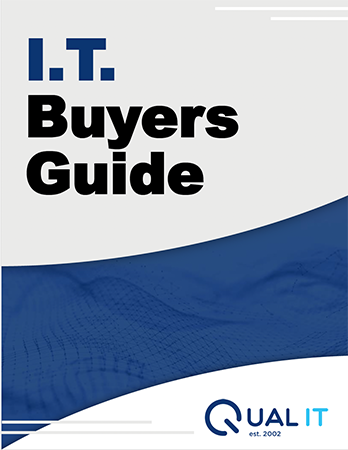
There’s a lot of buzz about artificial intelligence (AI) right now—and it’s not just hype. Tools like ChatGPT, Microsoft Copilot, and Google Gemini are rapidly working their way into law firms across Salt Lake City.
From summarizing depositions to generating client correspondence drafts and assisting with case research, AI can be a productivity goldmine. But in a legal environment where compliance is king and data breaches are career-ending, you can’t afford to overlook the risks.
Let’s break this down.
The Real Threat Isn’t AI—It’s How Your Firm Is Using It
Here’s the deal…
The biggest danger isn’t AI itself. It’s what your associates, paralegals, and even partners are feeding into it.
If someone on your team copies and pastes confidential case details, sensitive client communications, or even internal firm strategies into a public AI tool like ChatGPT, that data could end up being stored, analyzed, or even reused in future model training. That means it’s potentially out there—forever.
Just ask Samsung. In 2023, their engineers accidentally leaked proprietary source code into ChatGPT. It was such a disaster, the company banned public AI use firmwide.
Now imagine the same scenario in your law firm. A paralegal pastes financial discovery data or a protected client memo into an AI tool to “speed up their summary.” In seconds, privileged information walks out the digital front door.
For Salt Lake City law firms dealing with ABA compliance and Utah data privacy laws, this isn’t a minor slip—it’s an ethical minefield.
What Law Firms Need to Understand About Prompt Injection
Hackers aren’t just hoping you’ll get sloppy—they’re actively counting on it.
Welcome to “prompt injection,” the newest technique being used to exploit AI. Here’s how it works: an attacker embeds malicious instructions into a document—maybe a PDF, court transcript, or even an email. When your AI assistant reads that file, it’s tricked into handing over sensitive data or performing unauthorized actions.
It’s like phishing—but your AI tool is the one getting scammed.
This isn't science fiction. It's already happening. And most legal practices in Salt Lake City aren’t even aware of it.
Why Salt Lake City Law Firms Are Especially at Risk
Let’s be honest—most firms don’t have an AI usage policy. There’s no IT handbook sitting next to the Bluebook.
Your associates install new tools without IT’s blessing. Your office manager experiments with document automation on their personal laptop. And no one’s monitoring who’s using what—or how.
It’s not bad intent. It’s just how law firms operate: fast, deadline-driven, and focused on winning cases—not on cybersecurity.
But here’s what’s at stake: a few careless keystrokes can expose your firm to malpractice claims, ethics violations, and a devastating hit to your reputation.
And if you think your current IT provider has this covered... ask yourself: when was the last time they proactively reviewed your AI risk exposure?
What Your Law Firm Can Do Right Now
You don’t need to ban AI—your competitors in South Temple and downtown definitely aren’t. But you do need guardrails.
Here’s how to start:
- Draft a Clear AI Usage Policy
Define which AI tools are approved, what kind of data is strictly off-limits, and who attorneys should consult before using a tool. Be specific. “No client PII in public tools” is a good start.
- Educate Your Team (Yes, Even the Partners)
Make sure everyone—from interns to senior counsel—understands how AI misuse could violate ABA confidentiality rules or trigger a breach under Utah’s Data Breach Notification Act.
- Stick to Secure, Business-Grade Platforms
Microsoft Copilot (when integrated with Microsoft 365 Business Premium) keeps data within your cloud environment. Public tools? Not so much. Only use platforms with enterprise-level security, retention control, and audit trails.
- Monitor & Control Tool Usage Firmwide
Talk to your IT provider (and if they can’t help, talk to us). You need visibility into what tools are being used on which devices—and the ability to shut down public AI access if necessary.
Look—You’re Not Running a Tech Company. You’re Running a Law Firm.
You shouldn’t have to be the one worrying about prompt injection or shadow AI usage. But you do need someone in your corner who understands how to protect legal operations from high-tech threats.
That’s where we come in.
At Qual IT, we specialize in Managed IT Services for Salt Lake City law firms. We know your tech stack—from Clio to NetDocuments. We understand your compliance obligations under ABA and Utah law. And we’ll make sure your data stays secure, your staff stays productive, and your AI tools work for you—not against you.
Bottom Line
AI isn’t going anywhere. In fact, it’s quickly becoming a competitive edge in legal work. But if your firm doesn’t set boundaries and educate your team, you’re not innovating—you’re exposing yourself.
Let’s make sure your firm isn’t one click away from an ethics complaint or a headline-making breach.
Click here to book your free legal network assessment.
We’ll walk you through your AI risk exposure, tighten your security policies, and show you how to keep your data safe—without slowing your team down.



